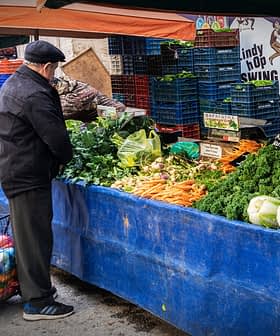Google’s approach to novel ideas and pioneering thinking is called ‘Solve for X’. The whole concept is that a big problem, no matter its nature, requires a radical solution that can become feasible by using the most state-of-the-art technology available. As Astro Teller comments in a Wired magazine article, “Google X Head on Moonshots: 10X Easier than 10 Percent,” thinking about solving a global problem is not only appropriate for big companies and powerful organizations, but everyone can give it a shot if he can cudgel his brains and think out of the ordinary to come up with the solution. And, contrary to common belief, trying to improve by 10 times instead of only 10 percent is usually easier. This so-called ‘moonshot thinking’ is the very opposite of incremental thinking; instead of slowly carving your way to the solution, focus on the big things and go directly there.
When it comes to olive oil and given today’s special circumstances, the parallelism is obvious: if the olive oil farmers and producers in Greece are able to overcome the unfavorable situation, then they have to pursue and sustain a production that will return a revenue big enough to keep them going. But if they do everything by the book, then the mission is too hard to be accomplished. This means that they must be flexible and open-minded, and that they should look ahead to find an overall solution to their problem no matter their size and power in the olive oil industry. In other words, they should do a moonshot thinking.
Matters that go on for ages and tantalize the industry can be put on a moonshot track and become obsolete. For example, instead of discarding the liquid residue coming out from the oil mills, a practice that sometimes makes the oil mill owners answerable to public authorities because of pollution, a different path can be taken to purify it and turn it to water suitable for irrigation. The technology exists but it is very expensive for a single mill owner to buy and use the necessary equipment, so the producers could come up with a cost-effective solution, maybe by creating a waste processing plant serving many olive oil mills.
Every summer the debate goes on whether the pesticides for the olive fruit fly were effective or not and if the fresh olive oil will be good or not, since the fly has a significant impact on its quality. But if the producers focus on the problem and try not to improve things just a bit but instead eliminate the whole problem, they will see that genetics just might be the place they haven’t searched so far to find the answer to their problem. This approach needs to be clarified at a European level, but remember that trying to make things ten times better could prove easier than aiming at a mere ten percent of improvement.
Exports of Greek olive oil are anemic and the world market is dominated by Italian and Spanish oils. Some more tons of olive oil going to Germany, Russia or China are good for the exporting company, but they are not that important compared to an holistic attempt to establish the Greek olive oil quality in consumers’ minds and branding it worldwide.
Olive oil farmers and producers comprise a sensitive part of the Greek agricultural caste and they are a rather large cog in a much larger wheel. Simply put, they are too important to fail and incorporating advanced thinking or “solving for X” can be all it takes to survive and even prosper.








